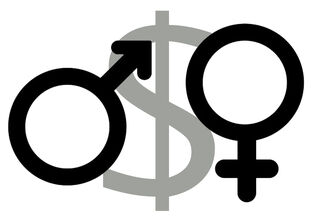Motivation
He Invests, She Invests
What different things men and women do with money.
Posted December 4, 2021 Reviewed by Devon Frye

No one has a crystal ball when it comes to investing. However, there tend to be different styles of investing among men and women. We know that men have traditionally dominated the financial field. Many names come to mind: Merrill, Lynch, Goldman, Sachs, E.F.Hutton, and the list goes on. The movie "Wolf of Wall Street" was itself based on the life of Jordan Belfort, the iconic masculine bro of the financial world.
Ron Lieber of the New York Times claims: Heroes or villains, winners or losers, real or imagined, our iconic investors are very, very male. But that may be a mistake—because it turns out that women are often better at investing.
Fidelity offered up the latest evidence in October 2021: Over a 10-year period, its female customers earned, on average, 0.4 percentage points more annually than their male counterparts. That may not seem like a lot, but it can add up to tens of thousands of dollars or more over a few decades. Fidelity's analysis covered 5.2 million customer accounts (some people had more than one) from 2011 to 2020. It looked at individual retirement accounts, 529 plans, and basic brokerage accounts that individuals (not financial advisers) controlled, but not workplace accounts like 401(k)s. No strategies were excluded: Those who traded individual stocks were tracked and those who stuck to mutual funds.
Women's investment decisions tend to be based on different considerations than those of men. Men tend to be driven by a desire to improve their investment performance. Women tend to be more interested in investments that help them meet their life goals. According to the Fidelity study, nearly three-fourths of millennial women ages 25 to 40 are now investing outside their retirement accounts. The findings show that two-thirds of young women see the value of funding for a specific goal compared to 56 percent of young men.
It begs the question: What factors guide the genders in investing?
In their academic paper, "Boys will be Boys: Gender, Overconfidence, and Common Stock," Professors Brad Barber and Terrance Odean reveal that men tend to be more overconfident than women in areas such as finance. This difference in overconfidence yields two predictions: men will trade more than women, and men's performance will be hurt more by excessive trading than the performance of women. To test these hypotheses, they partitioned a data set of position and trading records for over 35,000 households at a large discount brokerage into accounts opened by men and accounts opened by women.
Why do men tend to trade more than women, sometimes too much? William J. Bernstein, a neurologist who turned his attention to investing years ago, points to testosterone as one possible factor. The hormone could cause three problems for investors: It decreases fear, increases greed, and contributes to overconfidence. "It does wonderful things for muscle mass and reflex time, but doesn't do much for judgment," he said.
If you fear too little, you're more likely to get battered when markets fall since you'll have too much money in the wrong kinds of investments. Similarly, too much greed can lead to too much risk. As for overconfidence, Mr. Bernstein, the author of The Investor's Manifesto, suggests a self-administered test question: How certain am I of what I'm doing? "In finance, if you're certain of anything, you're out of your mind," he said. No one has the crystal ball.


